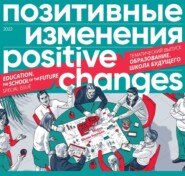По всем вопросам обращайтесь на: info@litportal.ru
(©) 2003-2024.
✖
Позитивные изменения. Том 3, № 3 (2023). Positive changes. Volume 3, Issue 3 (2023)
Настройки чтения
Размер шрифта
Высота строк
Поля
Social entrepreneurship can also be fostered through the format of creative or tourist clusters, which I mentioned earlier.
Can businesses partner with universities in fulfilling their third mission?
I would like to compare the concept of a university’s third mission with that of corporate social responsibility (CSR) in business.
CSR projects play a significant role in addressing socially relevant issues in cities and regions, while also aligning with the sustainability and development priorities of the business itself. For example, engaging with the communities where businesses are located can help mitigate potential risks. If city residents trust a company, they are more likely to view any issues that may arise at the company with understanding and support.
Creating an enabling urban environment, including aspects related to environment, social initiatives, and cultural development, is undeniably crucial for attracting and retaining talent. In this regard, companies involved in CSR initiatives could serve as valuable partners for universities in realizing their third mission. This partnership could encompass initiating student projects, supporting the university’s role as a think tank, and collaborating on activities with NGOs and social entrepreneurs.
And what are the opportunities the third mission offers to the university staff?
Within universities, there are structural units that seek external funding opportunities. By implementing various third mission projects, these units can establish their reputation among potential clients for conducting various activities such as research, analytics, and more. Eventually they can start providing services for commercial projects commissioned by companies or government bodies at the regional and city levels.
The Ural Federal University (UrFU) has an interesting example to share. In 2022, it launched a grant competition for university employees. The contests was funded with the university’s own funds, and its aim was to assist NGOs in developing projects eligible for funding through grant competitions offered by the Presidential Grants Fund and the Presidential Cultural Initiatives Contest.[38 - UrFU. (2022). Regulations for the “2022 Third Mission Research Challenge” competition. Retrieved from: https://clck.ru/35eNAz. (accessed: 11.09.2023).] The university can act as a partner with NGOs in implementing the winning projects.
The NGOs can also be interested in partnering with a university, including its role as a source of professional development for their employees. For instance, NGO leaders and specialists may choose to work with students in the capacity of lecturers or research associates at a university, often on a part-time basis.
The NGOs can also be interested in partnering with a university, including its role as a source of professional development for their employees – to work with students in the capacity of lecturers or research associates at a university.
Lastly, it is essential to emphasize that universities hold a reputable position in validating and affirming the credibility of the NGO performance and the methodologies they employ. When an organization can substantiate its social impacts with research findings, it adds a layer of authenticity to its work. Universities are well-suited to provide such validation, making partnerships with universities an important and promising avenue in this regard.
What universities can be called the leaders in developing the third mission in Russia? What kind of projects and new developments do they offer?
Yaroslavl State University, for instance, is expanding its close partnership with the regional resource center for NGO support, which is headed by Elena Isaeva. At the same time, YarGU promotes the third mission development among the universities in the Upper Volga macro-region as part of the “Priority 2030” program.
Another notable example of the third mission implementation is St. Petersburg State University, which has implemented a “clinical practice” format for its students. What does it mean, exactly?
Many are familiar with legal clinics run by universities, where students provide free legal advice to those in need. This helps upper-year students gain the necessary practical experience and get a better knowledge of the regulatory documents, while addressing various legal issues faced by the public.
The format of legal clinics has been picked up by more than one hundred universities in Russia.[39 - Legal Clinics. (2023). Center for the Advancement of Legal Clinics. Retrieved from: https://www.codolc.com/. (accessed: 11.09.2023).]
However, it is not just the legal clinic alone. St. Petersburg State University has 15 other clinics providing social services, psychological advice, conflict management, environment consultations, etc.[40 - Saint Petersburg State University. (2023). Clinical practice at St. Petersburg State University. Retrieved from: https://spbu.ru/studentam/praktika-po-modeli-kliniki-v-spbgu. (accessed: 11.09.2023).]
I believe this format has a great future for the realization of the third mission of the university, wherein students and staff together solve urgent and important socio-economic problems while staying immersed into the process of education.[41 - Lavrikova, M. Yu. & Rusakova, M. M. The contemporary labor market and education: a clinical approach as a response to the need for change in training. Retrieved from: https://spbu.ru/sites/default/files/kliniki_spbgu.pdf. (accessed: 11.09.2023).]
What are the possible formats of impact investing in third mission projects?
The first pilot project, implemented in the impact investment format with direct government support, was called “Improving the Educational Performance results of School Students in the Republic of Sakha (Yakutia)”[42 - National Research University Higher School Of Economics. (2022). Social Impact Project “Improving the Quality of Education in Schools of Khangalassky ulus”, Republic of Sakha (Yakutia). Retrieved from: https://ioe.hse.ru/sakha/results/. (accessed: 11.09.2023).]. The project was organized by VEB.RF and implemented by NRU HSE.
The progress in educational performance was ensured through additional training of students, building individual educational trajectories, professional development of teachers and school management teams, development of professional communities, involvement of parents in the formation of various school projects and designing the children’s educational trajectories.[43 - VEB.RF (2022). An Education Project Implemented in the Republic of Sakha (Yakutia). Retrieved from: https://вэб. рф/agent-pravitelstva/psv/socialnye-proekty/project-01/. (accessed: 11.09.2023).]
This project is an example of what happens when a university that is highly competent in organizational development of general education gets involved in a social impact project. I suppose that universities could also bring substantial improvement in other areas, such as employment, accompanied living, and health care.[44 - VEB.RF. (2022). Projects. Retrieved from: https://вэб. рф/agent-pravitelstva/psv/socialnye-proekty/. (accessed: 11.09.2023).]
How do we expand the participation of universities in impact investment projects and attract new partners to implement the third mission?
A truly strong university should be able to facilitate state-of-the-art knowledge and technology, the latest advances in global research and development today.
This is where the university can play a very important role, both as a potential implementing partner of social impact projects and as an expert acting on the customer’s side who can identify the right approach to solving a problem by providing preliminary examination of the solution proposed by the implementing partner of the social impact project.
You said at the start of the interview that the university is a non-financial development institution. Why?
The potential of higher education institutions participating in the formation and implementation of socio-economic development projects is based on their competencies in conducting high-level research and development, and in personnel training.
Putting this potential to use can turn them into a truly significant driver of economic development of cities and regions. The concept of the third mission is a good metaphor to describe this overarching objective.
Yulia Vyatkina
Editor, Positive Changes Journal
Экспертные мнения / Expert Opinions
«Обучение служением». Мировой тренд приходит в Россию
С 1 сентября 2023 года в 100 российских вузах появился новый образовательный модуль «Обучение служением». Его концепцию разрабатывали эксперты Минобрнауки, Ассоциации волонтерских центров и Высшей школы экономики. Тренд построения организаций высшей школы как социально ориентированных структур, где студенты имеют возможность активно участвовать в процессах общественного развития, набирает все большую силу во всем мире. В этой статье мы рассказываем об истоках этой инициативы, создающей взаимовыгодные условия для развития и высшей школы, и некоммерческого сектора, о том, как и кем эта методика внедряется в России сейчас. А также – с помощью ключевых экспертов в этой области – немного заглядываем в будущее.
Татьяна Печегина
Журналист
Алина Яшина
Заместитель председателя Совета Ассоциации волонтерских центров
АКАДЕМИЧЕСКИЕ ЗНАНИЯ + ПРАКТИЧЕСКИЕ НАВЫКИ = ОБЩЕСТВЕННОЕ БЛАГО
Расширение участия вузов в жизни общества, в развитии и решении актуальных социальных, экономических и иных проблем – то, что называется сейчас «третьей миссией» университета – во всем мире последние 20–30 лет воспринимается как само собой разумеющееся. В практике отдельных государств существуют специальные программы поддержки развития «третьей миссии», а на международном уровне ее реализация стала частью глобальных рейтингов вузов.
Ключевым вопросом для вовлечения университетов в социальную инновационную деятельность в рамках реализации своей «третьей миссии» является согласование основных учебных и исследовательских задач университетов и желаемых результатов социальных инноваций, которые могут представлять собой новую социальную услугу или деятельность. Роль университетов в обществе заключается в первую очередь в обеспечении более высокого уровня образования студентов и работников. Не являясь основной, «третья миссия», в рамках которой происходит развитие системы социальных инноваций, вступает в определенную конкуренцию с двумя остальными. Кроме того, в отличие от них, важную роль в развитии университетами «третьей миссии» в целом и социальных инноваций в частности имеет связь и сотрудничество с другими, в первую очередь – неакадемическими организациями[45 - Гладких, Н. Ю. (2020). Отчет о научно-исследовательской работе «Практики участия университетов в развитии социальных инноваций: международный опыт». Режим доступа: https://drive.google.com/file/d/1n9Im6fuNdfjZ2oSZY9AKvB-kZ0VR_f4k/view. (дата доступа: 18.08.2023).].
В обучении людей вопросам устойчивого развития наиболее эффективными показали себя практические педагогические методики, такие как проектное обучение. Все опросы студентов говорят о том, что они ориентированы на практическую составляющую, а сотрудничество университета и НКО, когда студенты вовлекаются в реально действующие, а не придуманные в методичках социально значимые проекты и работают с жизненными ситуациями, дает особенный эффект и остается в памяти студента на долгие годы. Но для этого необходима трансформация вуза, причем, в первую очередь, изнутри – чтобы взаимодействие с внешними партнерами и желание менять общество и решать социальные проблемы были «зашиты» в идеологию и культуру университета. Причем «перепрошивка» важна в представлениях преподавателей о процессе обучения.
КОНСТРУИРОВАТЬ БУДУЩЕЕ ЗДЕСЬ И СЕЙЧАС
Одной из важнейших частей «третьей миссии», посвященной направлению, связанному с взаимодействием с некоммерческими организациями и с созданием треков социальных инициатив, является «обучение служением» или service learning. Это методика, сочетающая изучение академических дисциплин с формированием навыков общественно-полезной работы, которая обеспечивает интеграцию обучения и социальной практики и дает студентам возможность развивать soft skills – надпрофессиональные компетенции, так необходимые в нынешних реалиях.
Исходными положениями для service learning стали идеи социального конструктивизма Жана Пиаже (Швейцария), Джона Дьюи (США) и Льва Выготского (СССР), создавших концепции социализации, лежащие в основе современного образования. Ключевая мысль – будущее надо не прогнозировать, а конструировать здесь и сейчас, помещая в центр конструкта ценности и интересы личности, мобилизуя ее волю и ответственность[46 - Решетников, О. В. (2016). Конструирование и проектирование социальной реальности: от замысла к воплощению. Местное право, (3), 79–90.].
Во многих странах эта практика является уже привычной, поощряется на государственном уровне. Например, в Великобритании, Нигерии, Аргентине, Португалии, Бразилии, Венесуэле, Чили и Испании в рамках образовательного процесса проводят курсы гражданского и социального служения, организуют добровольную работу студентов и школьников в общественных центрах и т. д. В образовательную программу MIT (Массачусетского технологического университета) встроен трек, в котором на протяжении всего обучения студент участвует в социальных инициативах, внедренных в образовательные программы и курсы.
«Обучение служением» – образовательная технология, педагогическая практика, соединившая в себе процессы обучения и служение обществу в рамках конкретных проектов, где студенты совместно с представителями некоммерческого сектора работают над реальными кейсами с целью улучшения окружающей среды – в глобальном понимании этого определения. Говоря проще, это практика реализации образовательных проектов с социальной пользой[47 - Гаете Сепулведа, М. А. (2022). Обучение служением через проектно-прикладную деятельность. Методические рекомендации для университетов. Режим доступа: http://cpo.samgtu.ru/sites/cpo.samgtu.ru/files/obuchenie_sluzheniem_vshe.pdf. (дата доступа: 18.08.2023).]. Она способствует развитию у учащегося интереса к поиску своей личностной уникальности, играет огромную роль в формировании структуры ценностей конкретного индивидуума. То есть напрямую влияет на развитие личности и на всю дальнейшую жизнь человека.
ГОСУДАРСТВЕННЫЙ КУРС НА «ОБУЧЕНИЕ СЛУЖЕНИЕМ»
Фокус государственного внимания в России в настоящее время также смещается в сторону практико-ориентированного обучения мировоззренческого характера, где полученные академические знания могут применяться в реальных социальных условиях для решения актуальных для общества задач. При этом ключевым моментом является взаимодействие с НКО для решения реальных проблем людей и общества в целом.
С 1 сентября 2023 года запущена системная работа с вузами и социальной сферой. В конце прошлого года было опубликовано соответствующее поручение Президента РФ[48 - Президент России. (2022). Перечень поручений по итогам заседания Госсовета. Режим доступа: http://www.kremlin.ru/acts/assignments/orders/70421. (дата доступа: 18.08.2023).]. Разработкой и включением в образовательные программы высшего образования курса (модуля) «Обучение служением» занимались Минобрнауки России совместно с Минтрудом России, Росмолодежью и Ассоциацией волонтерских центров (АВЦ).
«Наша задача – предложить форматы внедрения, которые бы гармонично вписались в образовательные программы, – комментировала эту инициативу заместитель Министра науки и высшего образования Российской Федерации Ольга Петрова. – Есть университеты, в которых данный модуль уже интегрирован. Запрос на служение четко выражен у большого числа студентов, это мы видим по участию в движении #МыВместе, в работе Добро. Центров, в деятельности патриотических клубов #ЯГоржусь, в волонтерских мероприятиях»[49 - Минобрнауки России. (2022). Более 180 представителей вузов завершили программу повышения квалификации для внедрения курса «Обучение служением». Режим доступа: https://minobrnauki.gov.ru/press-center/news/obrazovanie/70234/. (дата доступа: 18.08.2023).].














